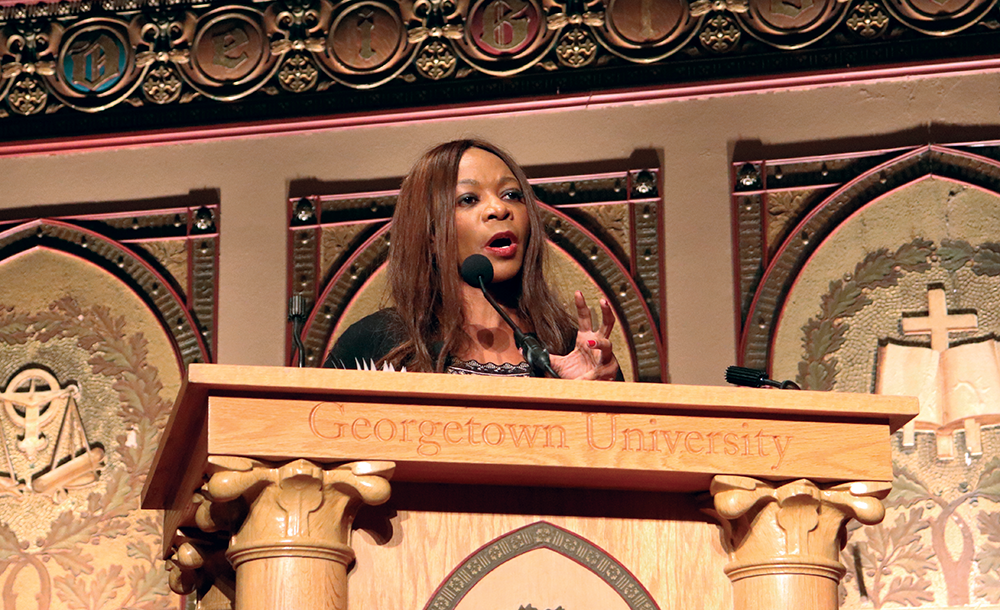Developing countries have less incentive to model their economies after the United States and allies following the success of China’s economy amid global stagnation, according to international economist Dambisa Moyo.
People around the globe are increasingly skeptical of a Western model of markets and democracy. Distinct from the West’s emphasis on market liberalization and free enterprises, the Chinese model adopts a form of state-led capitalism. This is particularly relevant as countries in Africa face a choice between the Western and Chinese models of economic development, according to Moyo.
“We have now different models of geopolitics and economics, China being one example, that has proven themselves able to deliver economic growth in a sustained way and move hundreds of people out of poverty,” Moyo said in her March 19 keynote address.
Economic downturns across the globe have compounded skepticism towards market capitalism and liberal democracy, according to Moyo.
“Fundamentally, we are in an economic situation where economic growth has slowed and continue to slow, and we’ve run out of bullets,” Moyo said. “We’ve used a lot of traditional tools of economics, both in terms of monetary policies, like interest rates, and also fiscal policies.”

Fears of persistent weak economic performances and economic stagnation led the International Monetary Fund to cut its prediction of global economic growth in 2019 from 3.7 percent growth rate to 3.5 percent. In developing countries, the IMF predicted a decrease in economic growth due to trade tensions, increasing U.S. interest rates and volatile oil prices.
Moyo named six challenges that require solutions to prevent economic slowdowns and sustain growth: demographic changes, technological development, income inequality, natural resource scarcity, debt and productivity growth.
The keynote address was part of the Lannan Spring Literary Symposium and Festival titled “Africa Imagines: Reversing the Gaze,” which aimed to provide African perspectives on the continent’s economic development and global affairs.
Hosted by the Lannan Foundation, Georgetown University’s Lecture Fund and the African studies program, the keynote address delivered by Dambisa Moyo focuses on international development and sustainable economic growth. Born in Zambia, Moyo is a global economist and worked at the World Bank in Washington, D.C. From 1993 to 1995, she co-authored the World Bank’s annual development report. Currently, she serves on the board of Barclays Bank.
Despite differences between the Western and Chinese models identified by Moyo, both face persistent issues of growing income inequality, she said.
“The biggest puzzle is that these two countries, number one and number two with complete different political systems and economic systems, have roughly the same Gini coefficient, which is the measurement of income inequality.”
In order to maintain the benefits that economic growth has granted countless citizens of developing countries, their governments must reckon with resource scarcity and excessive debt for sustainable development amid demographic growth and environmental challenges, according to Moyo.
“We have to figure out a way to ensure that people are going to be able to continue to enjoy improvements in their living standards, even though arable land, potable water, the supply of minerals and energy are increasingly becoming a challenge,” Moyo said.
All of these considerations present important questions to world leaders who face important crossroads between liberal democracy and protectionism, according to Moyo.
“We are living at a time when the world is becoming more fractured; people are becoming more protectionist in terms of trade, in terms of ideas, in terms of movements of people, in terms of movements of capital,” Moyo said. “Globalization is under threat. The question is, ‘How do we move on from here?’”














